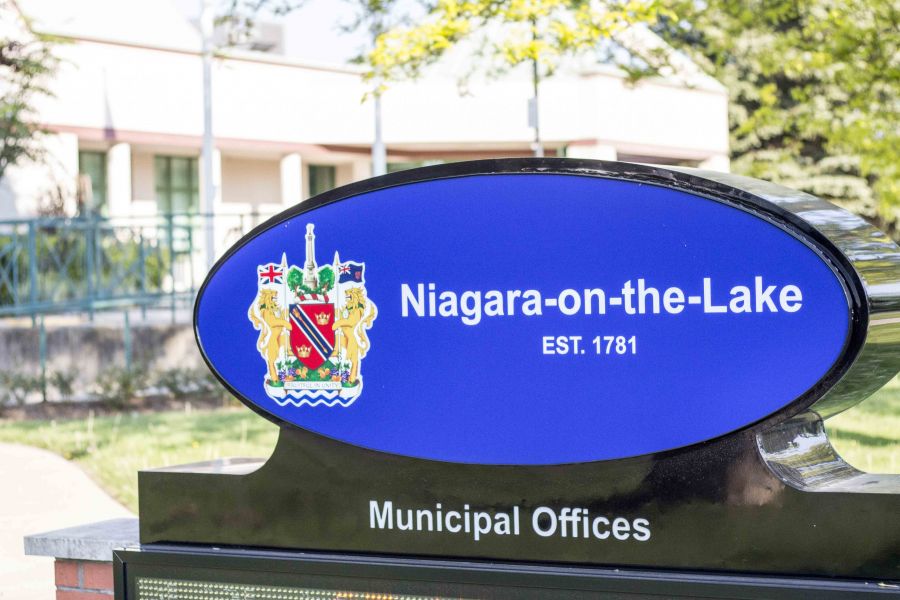The Town of Niagara-on-the-Lake officially has a budget for 2021.
The operating budget, approve last Wednesday, comes in at $37,327,452 and while overall expenses are down slightly ($37,453,452 in 2020), there’s a 2.12 per cent increase in residents’ municipal taxes.
There will also be a 5.04 per cent ($19,799) increase to the storm water levy for homes in urban areas, for a total of $456,998.
In total, residents can expect to see about a 2.79 per cent increase on the municipal portion of their tax bills — about $33 per year based on a home assessed at $533,482.
While the municipal portion of the budget has gone up, the town reduced the initial increase for the 2021 operating budget by 55 per cent ($533,000).
Major drivers of the operating budget include staff salaries, wages and benefits ($13,410,146), insurance, debt acquisition and legal expenses.
According to the operating budget report, “one large legal matter remains outstanding for 2021 with several planning appeals expected to continue. Other large legal matters are expected to be resolved in following budget years beyond 2021.”
The three big spends on the capital budget were $900,000 ($415,615 of which is loaned through the region) for self-contained breathing apparatuses and an $820,000 replacement pumper for NOTL Fire Services (full loan) and $550,000 (full loan) for the Mississagua Street culvert, which is now under construction.
The town will pay $233,896 in interest on long-term debt in 2021.
Town insurance also increased by $118,600 for 2021 ($515,300 total), which town treasurer Kyle Freeborn said has been “a huge impact to municipalities everywhere.”
He said that is “generally based more on claims being made by municipalities as a result of climate change, joint liability, class action suits, rising legal costs and a more recent trend of cyber attacks.”
He said globally there are “very few” municipal insurance providers.
“And, due to the volatility of the market, at least one municipal insurer has stopped underwriting municipalities,” he said.
Staff salary costs increased by $484,900, a two per cent increase.
Other increases included $118,000 for transit, $185,000 for a new storage and material transfer yard on Line 5 Road, and $91,000 for an environmental compliance technician.
In total, the town has budgeted $500,000 for legal expenses in 2021 — down from more than $1 million in 2020.
“In 2020, we saw a big increase of a million dollars to the town’s legal services budget line,” Freeborn said. “However, there’s been a number of legal matters that have been settled in 2020. We’re confident that in 2021 $500,000 will be able to cover the existing legal matters.”
In 2020, the town spent about $720,000 on legal fees, though the final number isn’t yet confirmed, said Freeborn.
During the budget meetings, councillors had a number of concerns about various spending projects.
Coun. Wendy Cheropita asked the town to look into the possibility of saving money on replacing the town’s fleet of vehicles by purchasing smaller, more “economical” vehicles for bylaw officers and town staff members who don’t require big trucks and SUVs.
She said she’s seen town bylaw officers driving around in SUVs and wonders if there’s another vehicle that could cost less.
Councillors also discussed the fate of the old nurse’s building beside the former hospital on Wellington Street in Old Town.
While council agreed there is no significant historical reason to keep or restore the building, there was concern about demolition costs and discussion on whether to spend the money, or spend less on a temporary fix.
Coun. Sandra O’Connor also pointed out the building is being sold and suggested letting the new property owner deal with demolition.
Council decided to move forward with the demolition anyway.
Freeborn said it was a difficult budget year.
“It’s been a challenging budget, but almost easier to do from a procedural standpoint, because there wasn’t much of a change. The largest challenges were dealing with reduced revenue, increased costs and the uncertainty that the pandemic creates.”
The town’s capital budget, which is paid for by various reserve funds, is $10,404,287.
The majority of that budget will go toward water, waste water management, road and fire and emergency services.
The total is significantly reduced by deferred projects.
The town deferred $11.5 million in capital expenditures beyond 2021 and cancelled $215,000 in capital projects.
Coun. Allan Bisback thanked staff for hard work drafting the budget.
“I don’t think there’s enough appreciation that, as we went through a difficult time since March, that we’re going to be able to land this plane with a very small surplus in light of the changing conditions all year. So I do want to take my hat off to staff.”
CAO Marnie Cluckie said the budget allows the town to keep core services running and to be prepared for further COVID-19 response in 2021, while keeping the impact to taxes below three per cent.
She and some councillors called it a “maintenance” budget, “where we preserve our core services, meet existing commitments, stay prepared for potential economic uncertainty and minimize the impact to taxpayers.”
Freeborn said the town raising its parking to $5.25 an hour on Queen Street should “bolster” parking revenues.
The town also used $128,000 in COVID-19 reserves to offset the general levy, as well as 75 per cent of the town’s surplus of $70,000 — about $52,000.
The library also contributed 75 per cent of its $100,000 surplus to offset the tax levy.
Various reserve transfers were also reduced to mitigate levy impact. The transfer to the Dock Area reserve was reduced by $200,000, election reserve was cut by $20,400, the street light reserve trimmed by $17,000.
Should the town have a surplus in 2021, these reserves will be the “first areas prioritized” to receive funding, said Freeborn.
Various studies are still to move forward, including a $70,000 tourism strategy study.
Freeborn said there are still “many challenges ahead for 2021” and staff will continue to monitor spending as they did in 2020.











